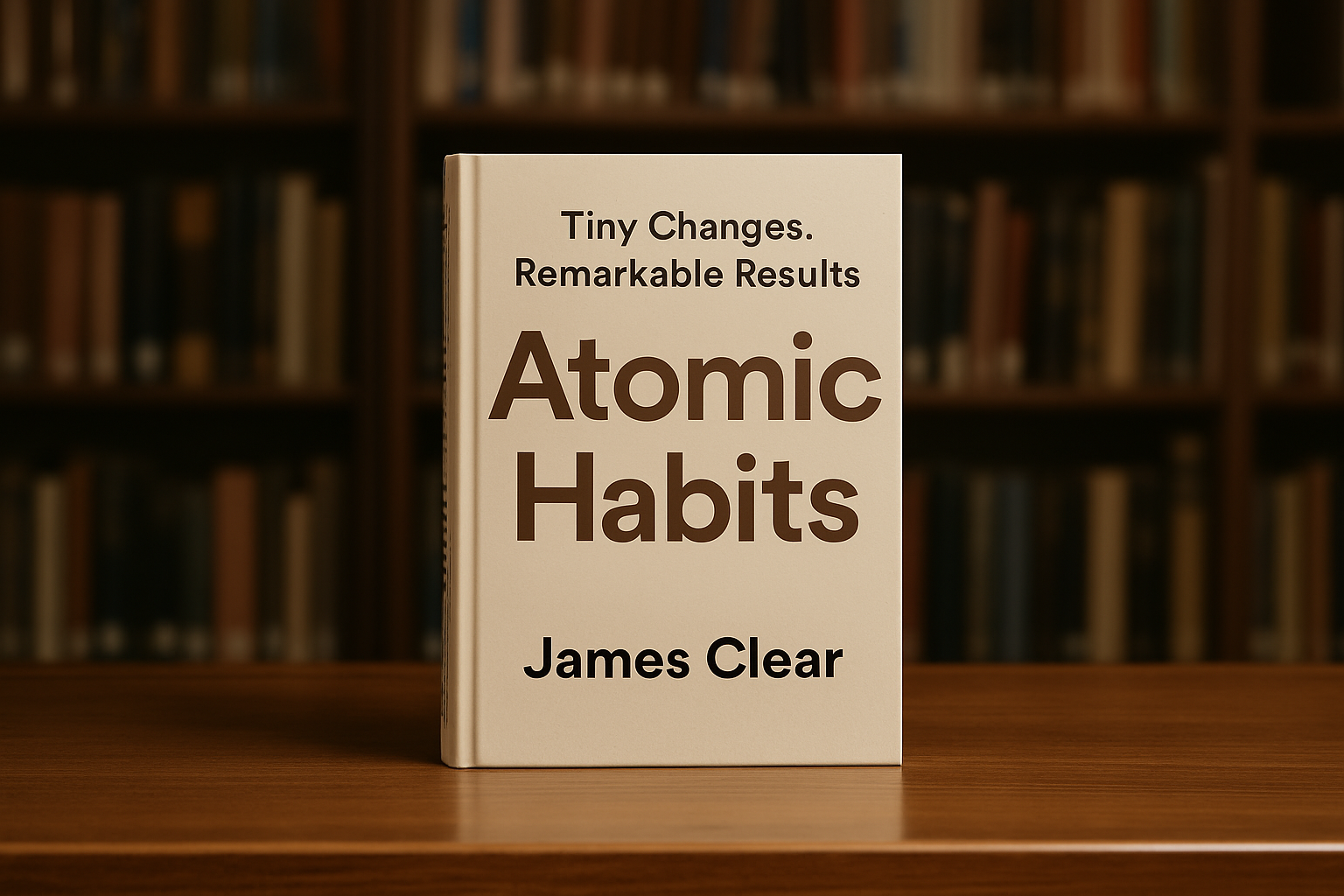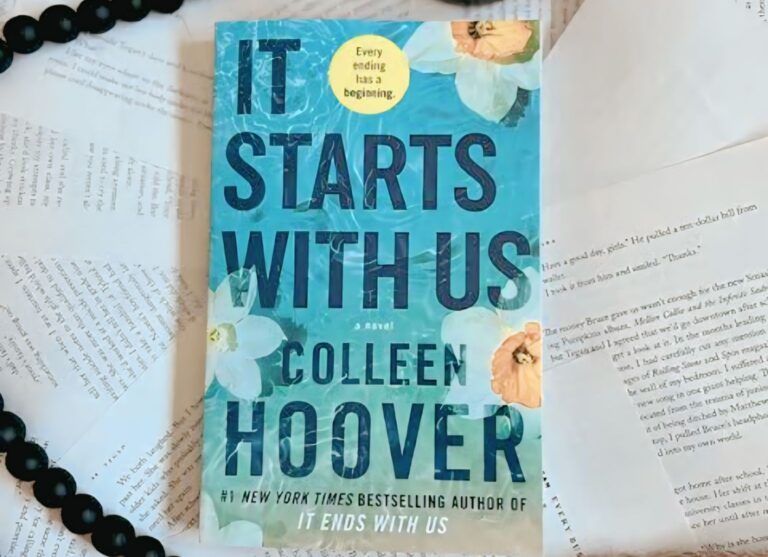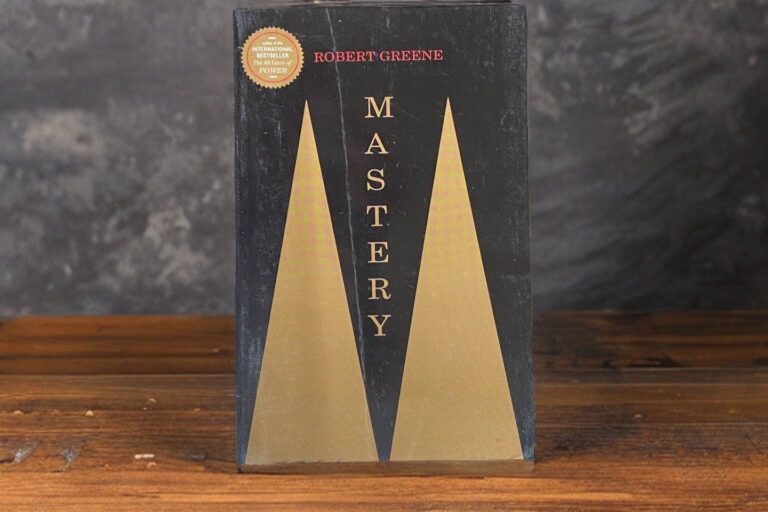
There are books that shout, and there are books that whisper. Atomic Habits by James Clear is one of the quiet ones. It doesn’t promise miracles. It doesn’t tell you to wake up at 5 AM or climb a mountain of motivation. Instead, it nudges you — gently — toward the truth that big change doesn’t come from grand gestures. It comes from the small things. The quiet things. The things nobody else sees.
At its heart, Atomic Habits is about how small changes, made consistently, compound into something powerful. It’s about the 1% improvements — the little wins that, over time, shape who you become.
Not Another Self-Help Book
The shelves are full of advice on how to fix your life. Most of it is loud. Most of it is temporary. Atomic Habits stands out because it doesn’t try to fix you. It shows you how to understand yourself. It’s a book that respects your intelligence — and your flaws.
Clear doesn’t push the idea of a massive overnight transformation. Instead, he helps you see that your life, right now, is the result of your systems. Your habits. Your routines. And if you want a different life, you don’t need a new goal. You need a new process.
The Invisible Force That Shapes Everything
One of the strongest messages in this book is this: success is never a single moment. It’s what happens when your daily decisions stack up over time.
“You do not rise to the level of your goals. You fall to the level of your systems.”
Clear wants us to stop focusing on outcomes. Stop obsessing over goals. Start building better systems. Because goals might give you direction, but it’s your habits that will carry you there — or not.
Who Are You Becoming?
More than anything, Atomic Habits is about identity. It’s not just about what you do. It’s about who you are becoming.
When you write every day, you’re not just forming a writing habit. You’re becoming a writer. When you read each night before bed, you’re not just turning pages. You’re becoming a reader. Habits aren’t just actions — they’re evidence of who you are.
Clear’s advice? Don’t focus on changing what you want to achieve. Focus on changing what kind of person you want to be — and then let your habits prove it.
The Four Simple Ideas That Actually Work
James Clear breaks the book into four main principles — laws, as he calls them — for building better habits. They’re simple. That’s why they work.
- Make it obvious.
Set up your environment so the habit is hard to miss. Want to drink more water? Put the bottle on your desk, not the kitchen shelf. - Make it attractive.
Pair it with something you enjoy. Listen to music only when you exercise. Read your favorite blog only after writing for 10 minutes. - Make it easy.
Don’t aim to write a book. Aim to write one sentence. Start small. Remove friction. Make the habit easier than not doing it. - Make it satisfying.
Celebrate the tiny wins. Check off a box. Smile after finishing. Reinforce the behavior with something positive, even if it’s just acknowledgment.
These aren’t gimmicks. They’re based on behavioral psychology. But what makes Clear’s writing different is that it never feels academic. It feels real. Lived. Honest.
Why This Book Hits Harder Than You Expect
You don’t need to be broken to benefit from Atomic Habits. You don’t need to be lazy, lost, or stuck. But even if you are, the book won’t judge you. It will meet you where you are.
It doesn’t shout at you to be better. It gently reminds you that you already have what you need — you just need a better system to get out of your own way.
The biggest takeaway? You don’t need to change your life overnight. You just need to make a better choice today — and repeat it tomorrow.
A Few Lines That Stay With You
“Every action you take is a vote for the type of person you wish to become.”
“You should be far more concerned with your current trajectory than with your current results.”
“The most practical way to change who you are is to change what you do.”
These aren’t quotes for your Instagram feed. These are words that stay with you when you fail, when you start over, when you feel like you’re not moving fast enough.
Who Should Read Atomic Habits?
This book isn’t just for high performers or self-improvement addicts. It’s for:
- the college student who keeps procrastinating
- the new mother trying to find time for herself
- the writer who can’t finish the first chapter
- the ordinary person who’s tired of starting over
In other words, it’s for all of us.
Final Thoughts
Atomic Habits doesn’t try to impress you. It doesn’t give you a formula to become rich or powerful in 30 days. It gives you something better — the truth. Change is hard. But it’s not impossible. And most of the time, it’s not even complicated. It’s just about doing something small. Something smart. And then doing it again.
If you’ve been waiting for the right time to start, this is your sign. And it doesn’t have to be big. Just 1%. Just today.
Key Lessons from Atomic Habits
1. Small Changes Compound Over Time
James Clear emphasizes the power of marginal gains. Improving just 1% each day may seem trivial, but over the course of a year, it results in significant transformation. Success, he argues, is the product of daily habits—not once-in-a-lifetime decisions.
“Habits are the compound interest of self-improvement.”
2. Focus on Systems, Not Goals
Goals provide direction, but systems are what actually lead to results. Clear suggests we stop obsessing over outcomes and instead design a repeatable, reliable process. Your identity is shaped not by what you want to achieve, but by what you repeatedly do.
3. Identity-Based Habits Matter Most
One of the most powerful ideas in Atomic Habits is the concept of identity-based habits. Instead of saying “I want to write a book,” say “I’m a writer.” When your habits reflect who you believe you are, change becomes sustainable.
“The goal is not to read a book; the goal is to become a reader.”
4. Environment Shapes Behavior
We often blame our lack of willpower, but Clear shows that environment plays a far larger role. Design your surroundings to support your habits. Want to read more? Keep books on your desk, not buried in a drawer. Want to snack less? Keep junk food out of sight.
Also read:
FAQs about Atomic Habits
Who should read Atomic Habits?
Anyone who wants to improve their life through better routines—students, professionals, creatives, or anyone stuck in cycles of procrastination or bad habits.
Is Atomic Habits based on science?
Yes. James Clear uses concepts from psychology, neuroscience, and behavioral economics to support his methods.
How long does it take to form a new habit?
Clear explains that habit formation isn’t about time—it’s about repetitions. The more you perform the behavior, the more automatic it becomes.
Can this book help break bad habits too?
Absolutely. The same four laws can be inverted to break bad habits: make it invisible, make it unattractive, make it hard, and make it unsatisfying.






